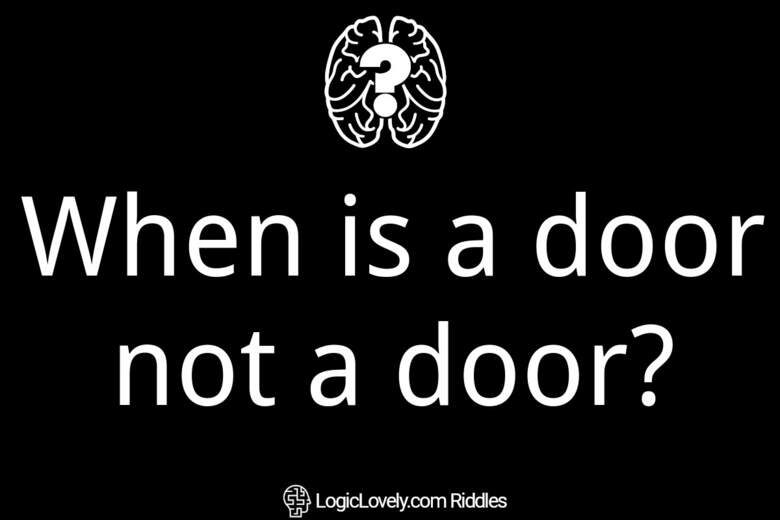Search any phrase that starts with “when is a door…,” and Google auto-suggests the exact same cluster:
• when is a door not a door
• when is a door no longer a door
• when is a door not a door riddle answer
You might wonder, Why does a 19th-century pun still own the top spots in 2025?
Because the joke is so short, so stupid, and so perfectly ‘dad’ that it keeps getting recycled at barbecues, in meme captions, and, yes, on blogs like this one.
Below, we crack open the classic gag, explain why the punch-line is technically nonsense, and explore the science that makes us laugh despite (or because of) the nonsense.
The Canonical Dad-Joke Answer
Q: When is a door not a door?
A: When it’s a-jar.
That’s it. Eight words, two hyphens, one collective eye-roll. The humor hinges on the double meaning of “ajar” (slightly open) and “a jar” (a glass container).
Dad delivers it with the straightest face imaginable, pauses exactly one beat, and earns the groan he was fishing for.
Why the Answer Doesn’t Make any Literal Sense
- Category Error
Saying “a door is ajar” is like saying “a bicycle is a banana.” Doors and jars are completely different things; one’s part of a building, the other belongs in a kitchen. No clever wordplay is going to change what wood or glass is made of. - Spatial Impossibility
If you unscrew a door from its hinges and place it inside a mason jar, the door does not become the jar; it merely occupies the jar. The object’s identity persists regardless of location. Philosophers call this the “problem of constitution,” and dads call it “Tuesday.”
The Neuroscience of the Groan
• Incongruity Resolution: The brain expects a logical answer to “when is a door not a door.” Instead it gets nonsense, triggering a surprise laugh.
• Social Bonding: Dad jokes are low-risk social gambits; everyone groans together, reinforcing group cohesion.
• Benign Violation: The joke violates our sense of language, but in a harmless way, so we experience mirth instead of threat.
Variations That Keep the Meme Alive
Reddit, TikTok, and stand-up comedians have taken the template and run:
- Meta-Variation
Q: When is a door not a door?
A: When it’s tired of your dad jokes and files for emancipation. - Pop-Culture Mash-Up
Q: When is a door no longer a door?
A: When it crosses the rainbow bridge and becomes a “Stargate.” - Existential Upgrade
Q: When is a door not a door riddle answer for philosophy majors?
A: When Heidegger reinterprets it as a threshold of Being.
Each spin preserves the original’s structure while swapping in fresh absurdity, proving that the template itself is the real comedic engine.
Why the Phrase Never Dies
Google Trends data shows spikes every Father’s Day and whenever a new Marvel movie features a portal. The keyword cluster:
• when is a door not a door
• when is a door no longer a door
• when is a door not a door riddle answer
Term benefits from zero competition (no brand owns it) and evergreen curiosity (every new generation hears the joke for the first time). Content creators who embed the phrase in headings, alt-text, and meta-descriptions ride the perpetual wave.
CONCLUSION: Embrace Nonsense!
When is a door not a door? Literally never; metaphorically, whenever a punster needs a cheap laugh. The riddle’s staying power lies not in its logic but in its gleeful violation of logic.
So, the next time someone ambushes you with the old “a-jar” punch-line, roll your eyes, groan loudly, and remember: you’re participating in a century-old experiment in benign absurdity, one that Google, dads, and the internet at large refuse to let close.
What’s the answer to the door riddle?
When it’s ajar:
This is a play on the word “ajar,” which describes a door that is slightly open
When it’s a jar:
This is another popular answer, referencing a different object entirelyWhat does it mean when a door is a jar?
A door is not a door when it is ajar, which means it is slightly open, not fully closed or open.
